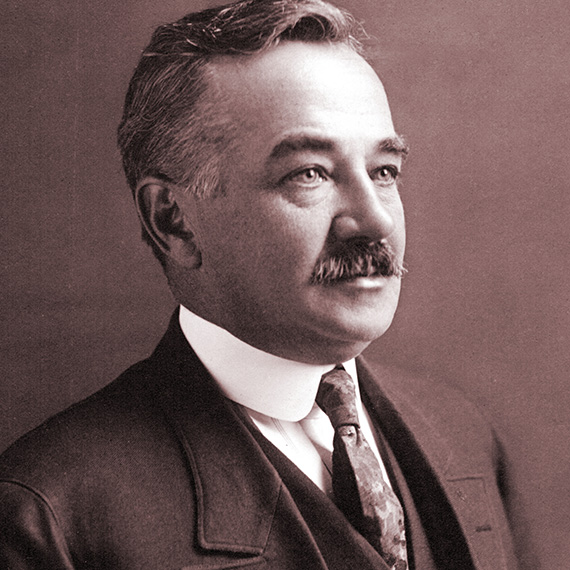Hershey Company, also known as (1894–1927) Hershey Chocolate Co., (1927–68) Hershey Chocolate Corporation, and (1968–2005) Hershey Foods Corporation, American manufacturer of food products,

chiefly chocolate and sugar-based confections. Hershey’s Milk Chocolate, in its brown-and-silver wrapper, was perhaps the best-known American candy bar of the 20th century. Company headquarters are in Hershey, Pennsylvania.
The Hershey Company traces its origins to the 1880s, when Milton S. Hershey founded the Lancaster Caramel Company in Lancaster, Pennsylvania. After seeing German-made chocolate-processing machinery at the World’s Columbian Exposition of 1893 in Chicago, Hershey decided to go into the chocolate business. In 1894 he started a chocolate company that had various confections on the market by the following year. In 1900 he sold the caramel company to a competitor and began the manufacture and sale of milk chocolate bars. Business was so successful that in 1903 Hershey started work on a new factory in Derry Township, Pennsylvania. It eventually became the world’s largest chocolate-manufacturing plant. An unincorporated community called Hershey developed around the factory.
In 1908 the Hershey Chocolate Co. was incorporated, and in 1927 it was reorganized as the Hershey Chocolate Corporation, a publicly traded company. Under the guidance of Milton Hershey—who remained with the company until shortly before his death in 1945—the product line steadily expanded, with the introduction of Kisses (large morsels) in 1907, Milk Chocolate with Almonds in 1908, Mr. Goodbar (with peanuts) in 1925, and Krackel (with crisped rice) in 1938. Hershey contributed to the World War II war effort with Field Ration D, an emergency nutrition bar that did not melt in tropical heat and was intentionally not tasty enough to tempt soldiers to eat it as a snack.

During the 1960s Hershey bought the manufacturer of Reese’s Peanut Butter Cups and two pasta businesses. In recognition of its diversification, the company was renamed Hershey Foods Corporation in 1968. Two notable changes came shortly afterward. After many decades at 5 cents, the price of the standard milk chocolate bar went up to 10 cents (bar size had diminished over the years). And in 1970 the company responded to increased competition—most notably from Mars, Inc.—by advertising to consumers for the first time.
Hershey had offered tours of its factory to the public since 1915. In 1973, however, the factory tours ended and Hershey’s Chocolate World, a kind of museum with interactive exhibits, opened as a replacement. (Additional Hershey’s Chocolate Worlds were later established in other cities.) During the 1980s the company purchased the American operations of Cadbury Schweppes, thereby becoming the manufacturer of Cadbury and Peter Paul products in the United States. Hershey made a major expansion into non-chocolate candies in 1996 when it acquired Leaf North America, owner of the Jolly Rancher and Payday brands. In 1998 the company sold off its pasta operations. Hershey Foods Corporation was renamed Hershey Company in 2005.
In 1905 Milton S. Hershey established the Hershey Trust Company for the upkeep of a school for underprivileged children; the facility eventually became known as the Milton Hershey School. He later donated most of his Hershey stock to the trust company, which by the early 21st century was the largest shareholder in the Hershey Company.